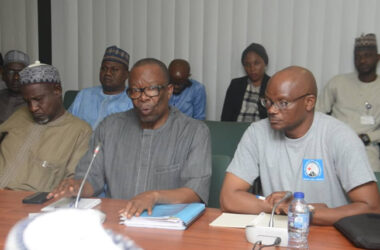The Kwara State Government is facing a major challenge in the health sector as it struggles to recruit enough doctors for its hospitals, despite having official approval to do so. This crisis, largely driven by the ongoing wave of emigration among Nigerian medical professionals—popularly referred to as the ‘Japa’ syndrome—is putting a strain on healthcare delivery across the state.
During the state’s first quarter interministerial press briefing in Ilorin on Tuesday, Dr. Abdulraheem Abdulmalik, Executive Secretary of the Kwara State Hospital Management Board, revealed that finding doctors willing to work in the state has become nearly impossible. “We have approval of His Excellency to recruit doctors, but we can’t just find the doctors to recruit. Doctors are hot cakes now. If a doctor resigns in the morning, he will get another job in the afternoon,” he said.
Currently, the state has only 99 medical doctors on its payroll, far below the required number of 180 to 200 needed to meet patient demand across 45 health facilities. Dr. Abdulmalik noted that prior to the recent increment in salary by Governor Abdulrahman Abdulrazaq, there were just 96 doctors, but three who had earlier left returned after the raise.
To ease the burden on patients and doctors, the board is now working on a digital application that will inform visitors about doctor availability at any given time. This is expected to reduce wait times and prevent patients from collapsing while awaiting medical attention, especially in understaffed rural areas.
The board is also looking into a new retention strategy. Dr. Abdulmalik explained a plan where the state would fund students through medical school, with an agreement that they serve in the state for an equal number of years post-graduation. He said, “That would mean there is a closing of the gap for medical doctors. Of course, that would kick off in about three to four years because we are starting from their clinical level, which is 400 level.”
While the issue is more pressing for doctors, the state also faces potential challenges with nurses leaving the country. Dr. Abdulmalik said, “They will ‘japa,’ regardless, but we are not as desperate for the nurses as we are for doctors because the social circumstances favour nurses staying in the country.”
Despite the shortage, health service delivery in Kwara has seen some positive outcomes in the first quarter of 2025. According to Abdulmalik, 43,065 patients visited the state’s health facilities between January and April, including 12,000 pregnant women. A total of 1,000 surgeries and 1,384 childbirths were recorded, with 131 of those being caesarean sections—an increase that brings the state closer to the World Health Organisation’s recommended rate.
Additionally, 30 deaths were recorded during the same period, while the government is planning partnerships with local drug manufacturers to reduce its reliance on imported medication.
On the legal front, the state Commissioner for Justice, represented by A. Grillo, stated that 437 criminal cases were received in the first quarter of the year. Out of these, 47 have been concluded, while 387 remain pending across various courts. The justice ministry also generated N689 million through contract vetting processes.










